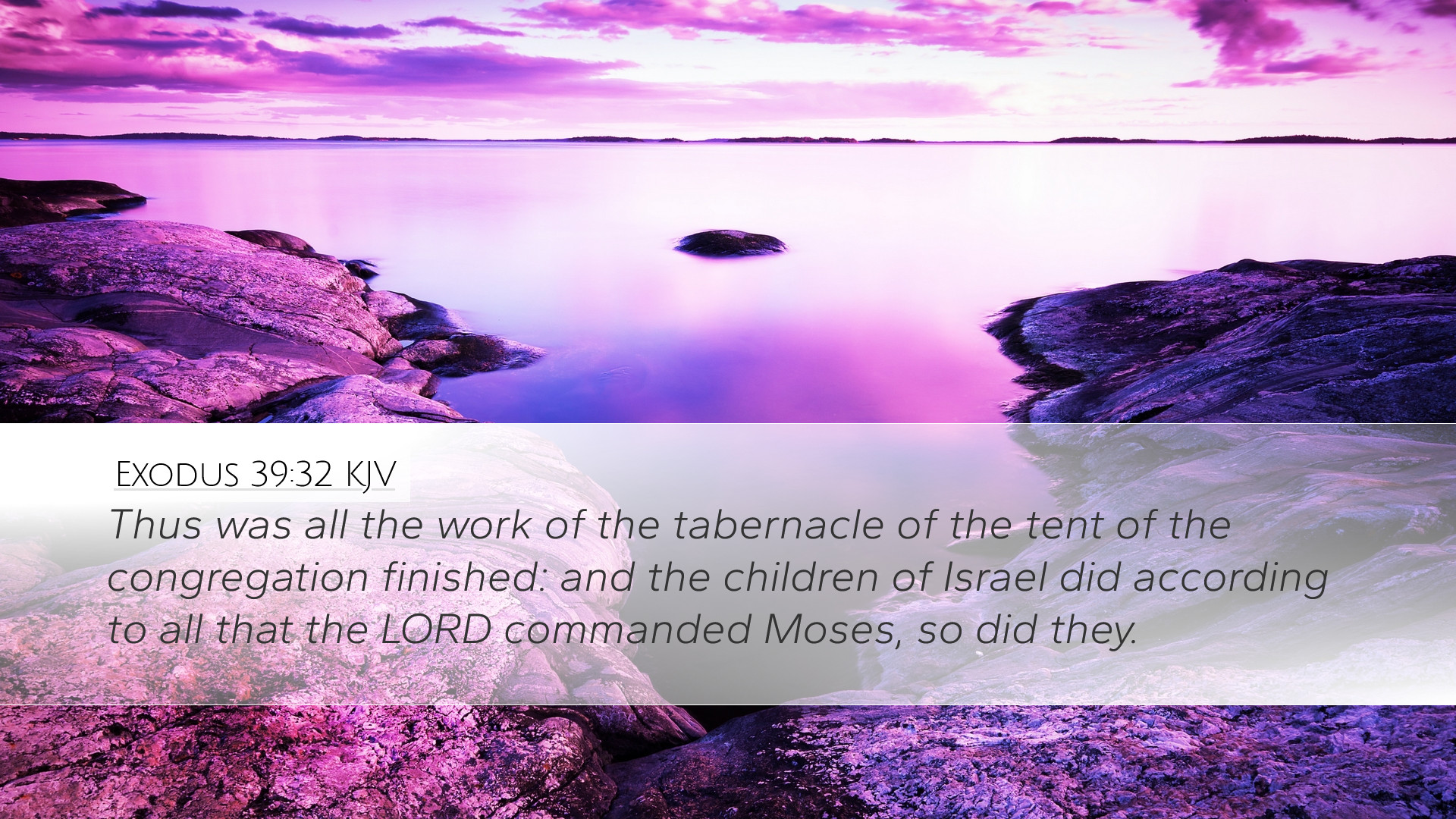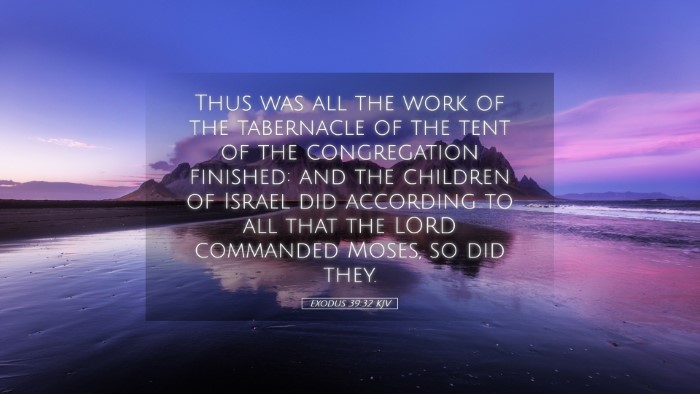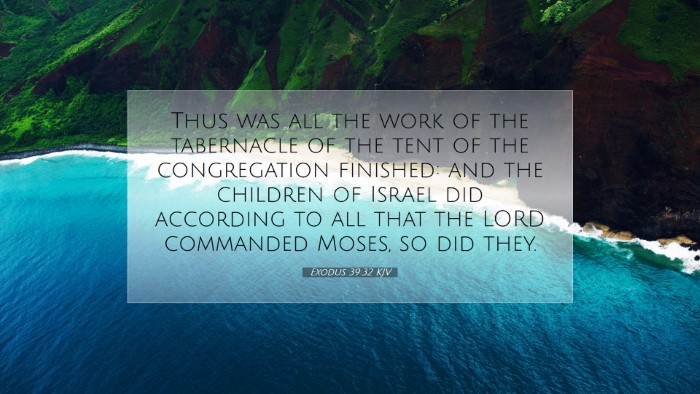Commentary on Exodus 39:32
Exodus 39:32 (NIV): "So all the work on the tabernacle, the tent of meeting, was completed. The Israelites did everything just as the Lord had commanded Moses."
The completion of the tabernacle, as noted in Exodus 39:32, marks a significant moment in the narrative of the Israelites' journey and worship in the wilderness. This verse encapsulates the culmination of a profound obedience to divine instructions, representing both the faithfulness of God's people and the seriousness of God's covenant.
Historical Context
The construction of the tabernacle was mandated by God to Moses at Mount Sinai. The Israelites, freshly liberated from Egyptian bondage, were instructed to build a dwelling place for the Lord among them. Each component of the tabernacle and its furnishings holds deep theological significance, symbolizing the presence of God and offerings made to Him.
Theological Insights
This verse highlights several key theological themes:
- Obedience: The Israelites' adherence to God's commands illustrates the essential nature of obedience in the faith community. As Matthew Henry emphasizes, their careful execution reflects their commitment to uphold God's moral and ceremonial laws.
- Divine Presence: The tabernacle serves as a reminder that God desires to dwell among His people. Adam Clarke points out that this intimate fellowship necessitates a structured worship system to acknowledge God's holiness.
- Covenant Relationship: The completion of the tabernacle is a physical representation of the covenant between God and Israel. Albert Barnes notes that such a space signifies God's promise to dwell with His people as they journey through life.
Exegesis of Key Components
Examining the phrase "the Israelites did everything just as the Lord had commanded Moses" reveals significant dimensions of biblical obedience:
1. Deliberate Action: The term "everything" implies a total commitment to following God's detailed instructions. This resonates with the idea of holistic obedience, as emphasized by various commentaries. Henry notes that partial obedience equates to disobedience in the context of divine commands.
2. Perfection of Execution: The meticulousness required in this construction project showcases the reverence the Israelites had towards God's commands. Clarke observes that the exactness was necessary to create a proper vessel for divine worship and presence.
3. Community Effort: The collective effort symbolized in this verse reflects the unity and purpose of the Israelite community. Barnes remarks on the collaborative spirit seen among the builders, which is indicative of how God's work in the church should similarly invite participation and unity.
Practical Applications
For pastors, students, theologians, and scholars, Exodus 39:32 provides several contemporary applications:
- Ministerial Integrity: Leaders are called to guide congregations in faithful obedience to God's commands, modeling the rigorous commitment seen in the tabernacle construction.
- Community Engagement: This passage encourages active participation in the life of the church, fostering a sense of ownership and shared responsibility among members.
- Holistic Worship: Just as the intricate design of the tabernacle served specific purposes, modern worship may also benefit from intentionality in addressing the multi-faceted nature of spiritual life and community gatherings.
Conclusion
Exodus 39:32 stands as a testament to the faithfulness of the Israelites and the unwavering commitment to God's directives. In examining this pivotal verse through various lenses—historical, theological, and practical—believers can draw valuable lessons on obedience, community, and the importance of God's presence in their midst. The insights from public domain commentaries complement the text, enriching our understanding of the divine narrative and its implications for our lives today.


